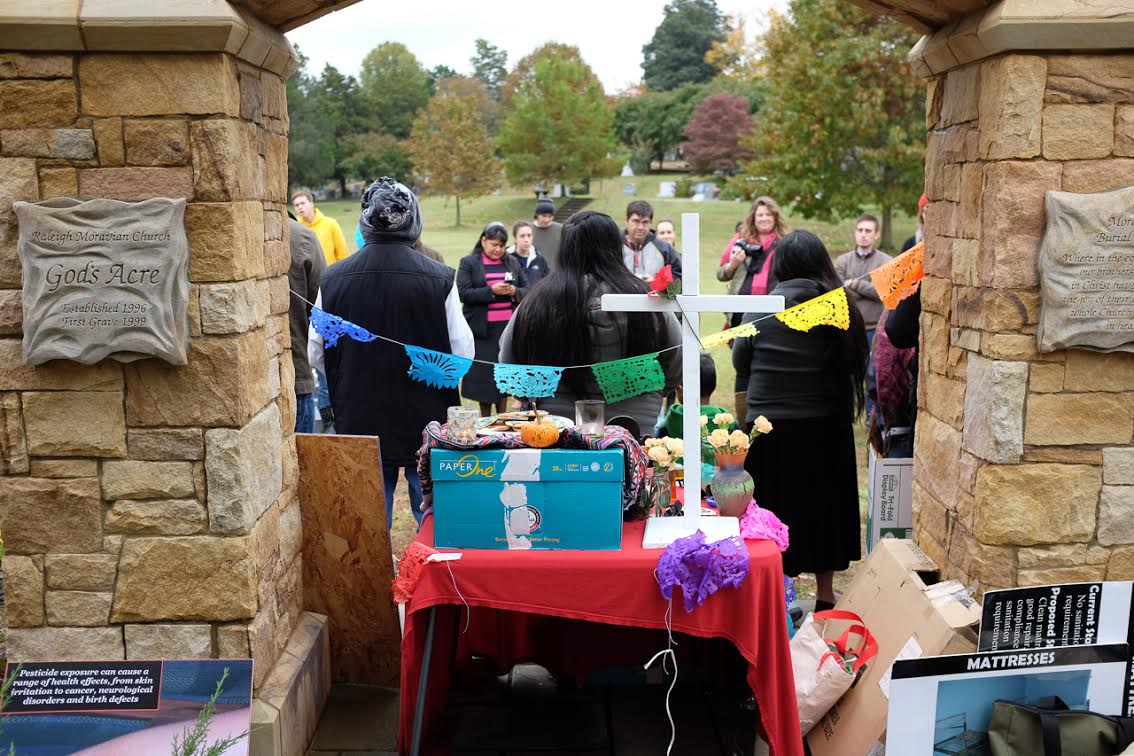Last week, advocates joined with farmworkers from across the state to remember fallen farmworkers who have died in the fields of North Carolina. The event took place on November 1, which is Día de los Muertos (Day of the Dead) in Mexico and All Saints’ Day for Christians around the world. While these two celebrations differ, they also have a lot in common. It is important to note that they fall at the end of the harvest season, when the days shorten and the trees shed their leaves — the natural world dies until its rebirth in the spring. At the event this past weekend, this timing was especially crucial because it made it possible for workers to attend the event and tell their stories.
Both Día de los Muertos and All Saints’ Day remember death. Their ways of remembering, however, are different. On All Saints’ Day, pastors often will read aloud the names of those who have passed away in the congregation. It is a time of remembering and praying for those who have departed. Día de los Muertos likewise remembers the dead, but it also celebrates their living memory. It is a time to welcome the dead back to the world of the living with a celebration; there is music, food, drink and flowers, and the families will often create an altar in memory of the deceased in their homes or go to the grave site to share a meal alongside the departed loved ones.
Our celebration, organized by the Farmworker Advocacy Network, incorporated dimensions of both Día de los Muertos and All Saints’ Day. The event took place at Oakwood Cemetery in Raleigh. It was held in the Moravian God’s Acre section of the cemetery, which I found particularly meaningful as all tombstones in Moravian cemeteries are flat and the same size so that everyone is represented as equal in death, regardless of race, gender, age at death, or status in life. An altar was created as a backdrop for the event, and Ramon Zepeda of Student Action with Farmworkers asked participants to place words on the altar that could have improved the farmworkers’ lives, words such as agua (water), descanso (rest), and respeto (respect).
The event served both to give current farmworkers a voice and to remember with dignity those who had already passed. Both field and poultry workers from across the state shared their experiences of enduring poor working conditions and working hard to improve their lives. Likewise, advocates read obituaries of farmworkers who had died, remembering the names of those who had passed or those who were nameless in death, but whose lives still mattered. Overall, it was a time for the larger family of humanity to gather around an altar to affirm life and humanity in the midst of death and injustice. As workers called on officials to help prevent future on-the-job deaths by enforcing state and federal laws, the most important part of the event was recalling that a memory celebrated becomes a living hope for eternal life.

